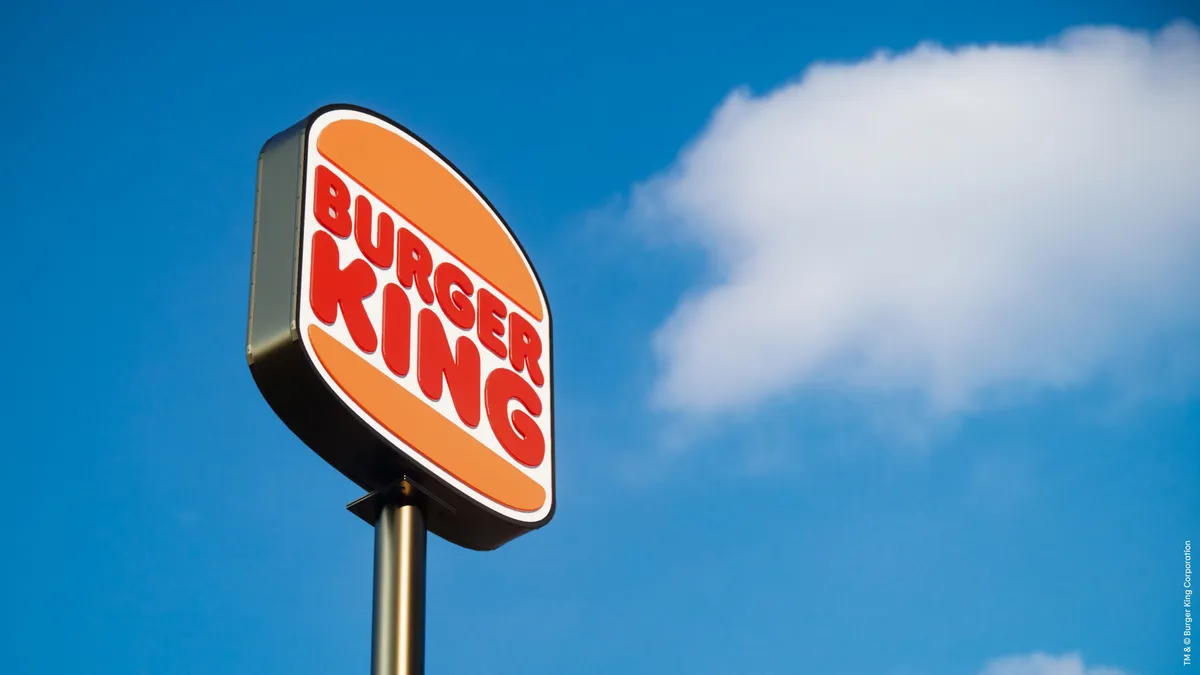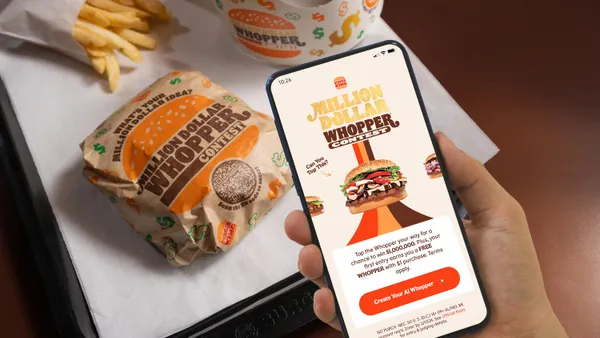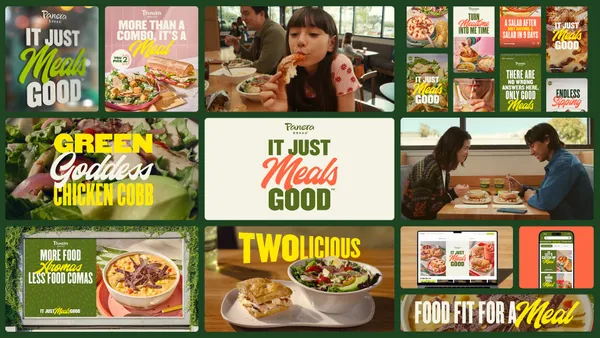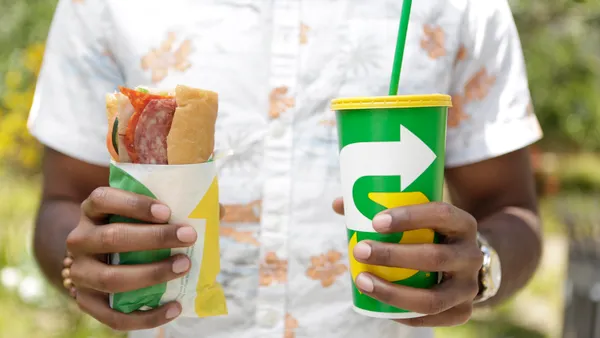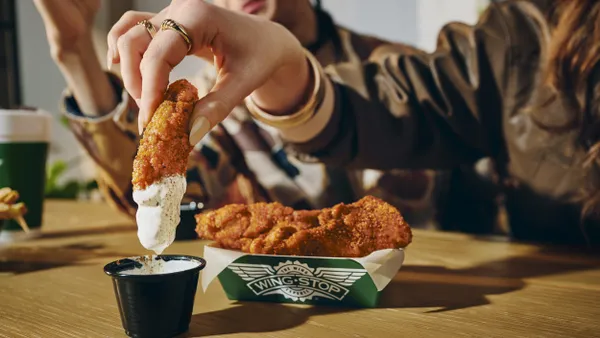Dive Brief:
- Restaurant Brands International announced a major overhaul to its Burger King U.S. division on Friday, consisting of a $150 million marketing push and a $250 million dollar investment in restaurant upgrades and remodels.
- The marketing program, called Fuel the Flame, will last through 2024 and allocate $120 million for advertising and $30 million to support the brand’s app and digital sales channels.
- The company’s modernizations aim to “attract more traffic to the brand over time,” RBI said in a statement, and could narrow the gap between Burger King’s comparable sales and those of rival brands.
Dive Insight:
RBI’s investment in store overhauls, dubbed the Royal Reset, will target franchisees that meet certain profitability thresholds and demonstrate that a remodel would permanently boost sales, according to company statements.
Previous remodels generated a 12% sales boost on average in the first year at participating locations, before gradually falling to a 2% sales lift versus comparable, unimproved restaurants. RBI expects sales improvements from the Royal Reset to be higher because of improved project selection.
“The Royal Reset remodel program will deliver 100% of our contribution at the time of remodel completion and provide access to greater levels of funding as compared to past programs,” the company claimed in its announcement.
Through the program, 3,000 restaurants will receive $50 million alongside matching contributions by franchisees to support the acquisition of new restaurant tech, kitchen equipment and unspecified building upgrades.
An additional 800 restaurants will receive $200 million to support complete remodels, which the company estimates cost between $500,000 and $1.8 million depending on restaurant location. RBI said this program was a major departure from previous remodel schemes, which focused on restaurants at the end of their franchise agreement cycles “rather than identifying the highest potential return projects.”
The remodel program will be financed in part by increased royalty rates spread over the 20-year lifespan of franchise agreements. Participating franchisees will pay somewhere between 4.5% in royalty rates, or the company’s normal level, and 6%, with franchisee commitment to royalty rate rises determining the degree of financial assistant RBI will provide.
“If we are successful in generating sales uplifts consistent with historical experience or better, we expect the program will generate a positive return on our capital and be accretive over time,” the company said in a statement.
RBI is seeking other ways to boost sales as well, including digital sales, which have emerged as a focus for Burger King in recent quarters.
The $30 million RBI has allocated to improve digital offerings will “support our Guests ease of ordering on the Burger King app which includes integrated payment processing, enhancing the Royal Perks loyalty program, the addition of digital personalized offers, and improving the overall convenience of delivery and pick up options,” RBI said in a statement.
RBI is also planning to simplify its menu and kitchen operations, focusing on Burger King’s chicken sandwich offerings and Whopper sandwich. Burger King will support these menu shifts with $120 million in advertising spend, which the company says is a 30% increase in its media buying capacity.
In a bet on the success of its efforts, Burger King has tied franchisee contributions to EBITDA improvements. The company says franchisees representing 93% of stores have signed up to participate in the Fuel the Flame advertising scheme. After the initial investment between 2022 and 2024, Burger King will levy an increase in franchisee advertising contributions.
“If system average EBITDA is in-line with 2019 levels by December 2024, then Franchisees will invest an incremental 50 basis points of sales into the advertising fund for 2025 and 2026,” the company states in its plan.
Burger King switched its media agency of record in April following a marketing review.



